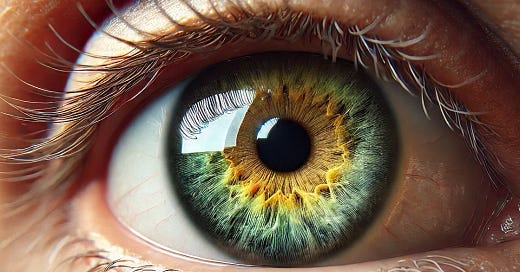Experiencing a flickering sensation in your vision, akin to a strobe light, especially when blinking, can be concerning. This phenomenon may occur sporadically or persistently and can be caused by a variety of underlying factors. Understanding these causes and exploring both mainstream and holistic approaches to address the issue can provide clarity and relief.
What Causes Vision Flicker?
Several factors may lead to a flickering or strobe-like vision effect. These include:
1. Posterior Vitreous Detachment (PVD)
As we age, the gel-like vitreous in the eye shrinks and can pull away from the retina. This detachment can cause flashes of light or flickering, especially during movement or blinking.
2. Retinal Tear or Detachment
A more serious condition, a retinal tear or detachment can also present as flashing lights or flickering vision. This requires immediate medical attention to prevent permanent vision loss.
3. Ocular Migraines
Ocular migraines, or migraine auras, can cause visual disturbances such as flickering, zigzag patterns, or blind spots. These episodes may last anywhere from a few minutes to an hour.
4. Dry Eye Syndrome
When the eye surface lacks adequate lubrication, blinking can cause a temporary disturbance in vision that might feel like flickering. This is often due to a disrupted tear film.
5. Neurological Conditions
Conditions such as optic neuritis, multiple sclerosis, or other nerve-related disorders may lead to visual flickering. These are typically accompanied by other symptoms like pain or loss of vision clarity.
6. Stress or Fatigue
Overworking the eyes, especially with prolonged screen time, can lead to flickering sensations. Stress and fatigue exacerbate the problem.
7. Electrolyte Imbalances or Dehydration
Imbalances in electrolytes, such as magnesium or potassium, can impact nerve function, sometimes manifesting as visual disturbances.
Mainstream Approaches
For patients experiencing flickering vision, it’s essential to rule out serious conditions first. Conventional medicine offers several diagnostic and treatment options:
Comprehensive Eye Examination
An eye doctor will check for issues like retinal tears, detachment, or PVD using imaging tools like optical coherence tomography (OCT) and dilated fundus exams.
Migraine Management
Medications such as triptans or preventative treatments like beta-blockers may be prescribed for ocular migraines.
Dry Eye Treatments
Artificial tears, punctal plugs, or medications like cyclosporine (Restasis) can improve tear production and relieve flickering associated with dryness.
Surgical Interventions
In cases of retinal detachment or tear, procedures like laser photocoagulation or a vitrectomy may be necessary to preserve vision.
Holistic and Natural Approaches
A holistic approach focuses on addressing the root cause of flickering vision while enhancing overall eye health. These natural methods can complement mainstream treatments:
1. Diet for Eye Health
Key Nutrients: Omega-3 fatty acids (found in fish like salmon), lutein and zeaxanthin (from leafy greens), and vitamin A (carrots, sweet potatoes) support retinal health.
Antioxidants: Incorporating berries, nuts, and seeds can reduce oxidative stress that may contribute to visual disturbances.
2. Hydration and Electrolyte Balance
Ensure proper hydration and maintain electrolyte balance by consuming foods rich in magnesium (spinach, almonds) and potassium (bananas, avocados).
3. Stress Management
Practices such as yoga, meditation, and deep breathing can reduce stress and alleviate tension that may trigger flickering sensations.
4. Eye Exercises
Regularly practicing exercises such as palming (covering your closed eyes with warm palms) and the 20-20-20 rule (looking at something 20 feet away for 20 seconds every 20 minutes) can relieve eye strain.
5. Herbal Remedies
Bilberry Extract: Known for improving retinal circulation, bilberry may help with visual clarity.
Eyebright (Euphrasia officinalis): Often used to reduce eye strain and inflammation.
6. Blue Light Protection
Limit screen time and use blue-light-blocking glasses to prevent strain that may exacerbate flickering.
7. Acupuncture
Acupuncture can improve blood flow to the eyes and has been used to address various visual disturbances.
8. Adequate Rest
Ensuring 7-8 hours of quality sleep allows the eyes and nervous system to recover, reducing the likelihood of visual anomalies.
When to Seek Immediate Help
While flickering vision is often benign, certain red flags warrant urgent medical attention:
Sudden onset of persistent flashes or flickering.
Accompanying symptoms like severe headache, pain, or vision loss.
A shadow or curtain effect in your peripheral vision, which may




